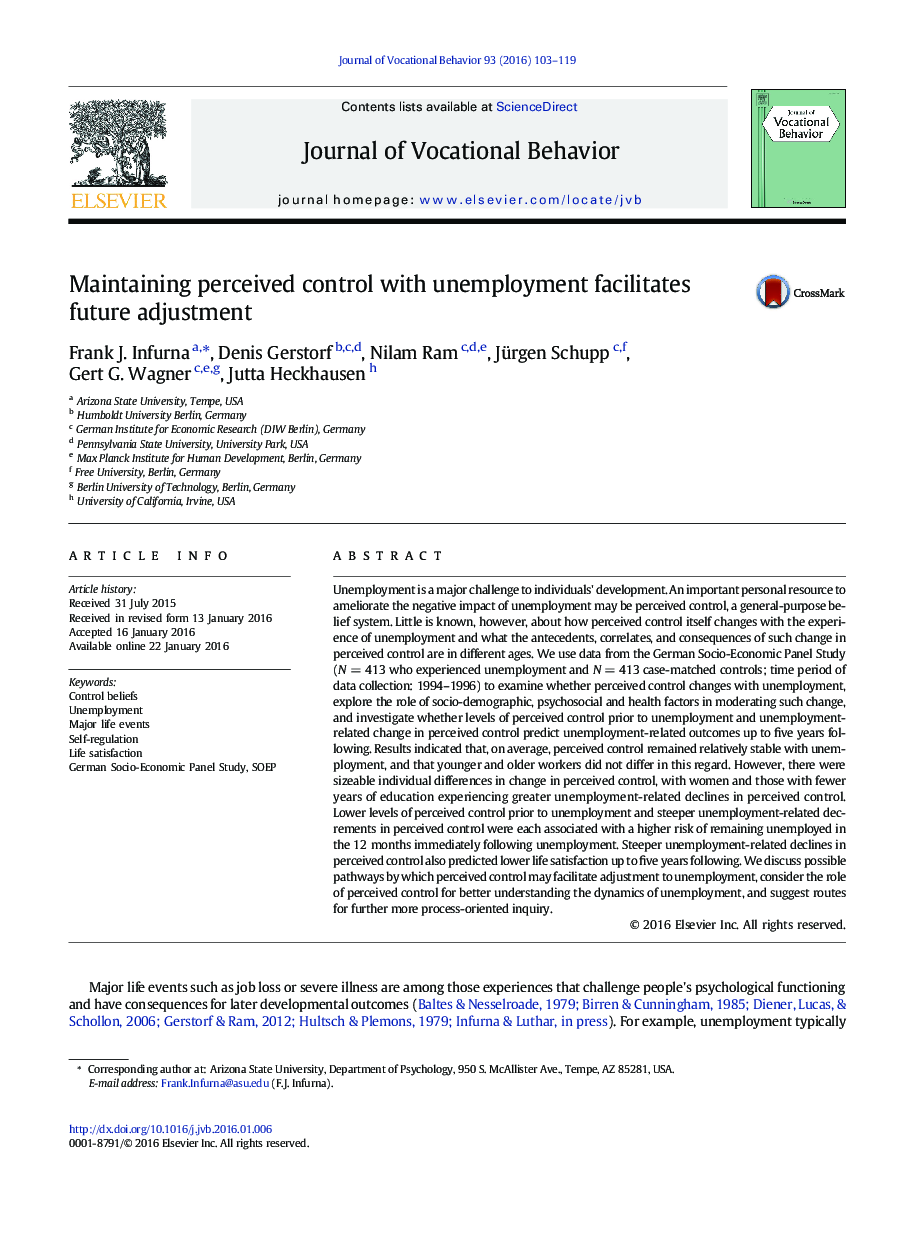| کد مقاله | کد نشریه | سال انتشار | مقاله انگلیسی | نسخه تمام متن |
|---|---|---|---|---|
| 7247596 | 1471806 | 2016 | 17 صفحه PDF | دانلود رایگان |
عنوان انگلیسی مقاله ISI
Maintaining perceived control with unemployment facilitates future adjustment
ترجمه فارسی عنوان
حفظ کنترل درک شده با بیکاری، تنظیم کننده آینده را تسهیل می کند
دانلود مقاله + سفارش ترجمه
دانلود مقاله ISI انگلیسی
رایگان برای ایرانیان
کلمات کلیدی
موضوعات مرتبط
علوم انسانی و اجتماعی
مدیریت، کسب و کار و حسابداری
بازاریابی و مدیریت بازار
چکیده انگلیسی
Unemployment is a major challenge to individuals' development. An important personal resource to ameliorate the negative impact of unemployment may be perceived control, a general-purpose belief system. Little is known, however, about how perceived control itself changes with the experience of unemployment and what the antecedents, correlates, and consequences of such change in perceived control are in different ages. We use data from the German Socio-Economic Panel Study (NÂ =Â 413 who experienced unemployment and NÂ =Â 413 case-matched controls; time period of data collection: 1994-1996) to examine whether perceived control changes with unemployment, explore the role of socio-demographic, psychosocial and health factors in moderating such change, and investigate whether levels of perceived control prior to unemployment and unemployment-related change in perceived control predict unemployment-related outcomes up to five years following. Results indicated that, on average, perceived control remained relatively stable with unemployment, and that younger and older workers did not differ in this regard. However, there were sizeable individual differences in change in perceived control, with women and those with fewer years of education experiencing greater unemployment-related declines in perceived control. Lower levels of perceived control prior to unemployment and steeper unemployment-related decrements in perceived control were each associated with a higher risk of remaining unemployed in the 12Â months immediately following unemployment. Steeper unemployment-related declines in perceived control also predicted lower life satisfaction up to five years following. We discuss possible pathways by which perceived control may facilitate adjustment to unemployment, consider the role of perceived control for better understanding the dynamics of unemployment, and suggest routes for further more process-oriented inquiry.
ناشر
Database: Elsevier - ScienceDirect (ساینس دایرکت)
Journal: Journal of Vocational Behavior - Volume 93, April 2016, Pages 103-119
Journal: Journal of Vocational Behavior - Volume 93, April 2016, Pages 103-119
نویسندگان
Frank J. Infurna, Denis Gerstorf, Nilam Ram, Jürgen Schupp, Gert G. Wagner, Jutta Heckhausen,
